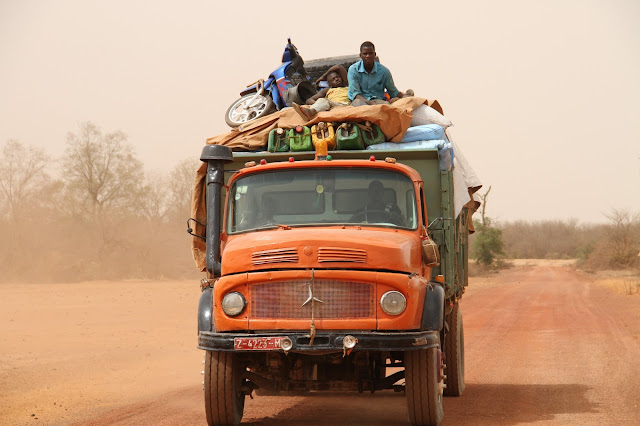We leave Timbuktu very early in the morning. As soon as we reach the “no-bridge” to Timbuktu we are faced by the heart wrenching situation of international refugees and internally displaced people.
Only a few trucks and families dare to come back… The crisis has forced 174,129 people to look for refuge in neighboring countries. On top of that, 300,783 people have been internally displaced, running away from the conflict, the bombs and the brutality of the jihadist.
Those numbers confirm the feeling of ghost city I felt, at times, in Timbuktu.
The humanitarian mission lead by Dr. Murphy and the International AIDS Education Project is especially concerned about the effect that the displacement has had in HIV-infected patients. Healthcare providers have now even a harder time tracking their patients and following up to make sure they’re receiving their lifesaving medications in a timely and consistent manner.
(Before coming to Timbuktu, we visited in Bamako the refugee clinic, created to support the influx of displaced people from the North, to the South. )
Our man in Mali, Almoustapha Maiga tells us how his apartment in Bamako hosted, at one point, more than 25 family members from the north. Most refugees and displaced people are not that lucky, and they wander freely looking for refugee services and camps, and trying to gather enough mats for adults and babies to sleep overnight.
Still, the United Nations Mission to Mali will not deploy until July 1st. At that point, hopefully more people will feel safe enough to return their home.
Now, we’re back on the road. We run into a few villages that are completely abandoned. We’re again in the no-road from Timbuktu to the South of Mali.
There is no doubt that the disgraceful isolation of Timbuktu is going to make the long road-back-home very difficult to both to the displaced and to those humanitarian activists who will be helping rebuild the country.
I can’t help but wonder…
If the rich countries were more intelligent about the fight against terrorism, they would start by supporting the basic infrastructure (roads, water, and power) to assure that important moderate cities like Timbuktu are not so vulnerable to the invasion of radical extremist.
Investing on creating a real road and a real bridge to Timbuktu, should be an international priority for peace and safety.






No comments:
Post a Comment